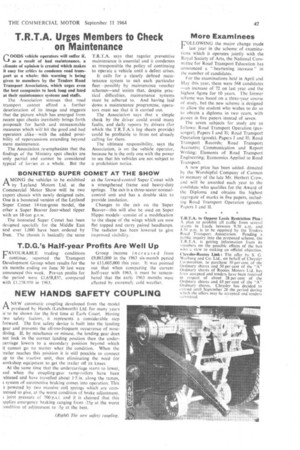T.R.T.A. Urges Members to Check on Maintenance
Page 49

If you've noticed an error in this article please click here to report it so we can fix it.
GOODS vehicle operators will suffer if, as a result of bad maintenance, a climate of opinion is created which makes it easy for critics to condemn road transport as a whole: this warning is being given to members by the Traders Road Transport Association, which urges even the best companies to look long and hard at their maintenance systems and staffs.
The Association stresses that road transport cannot afford a further deterioration of its image and suggests that the picture which has emerged from recent spot checks inevitably brings forth proposals for harsh . and unreasonable measures which will hit the good and bad operators alike—with the added possibility of repercussions extending beyond mere maintenance.
The Association re-emphasizes that the findings of the Ministry spot checks are only partial and cannot be considered typical of lorries as a whole. But the T.R.T.A, says that regular preventive maintenance is essential and it condemns as irresponsible the policy of continuing to operate a vehicle until a defect arises.
It calls for a clearly defined maintenance system to suit each particular fleet—possibly by maintenance voucher schemes—and insists that, despite practical , difficulties, maintenance systems must be adhered to. And having laid down a maintenance programme, operators must see that it is carried out.
The Association says that a simple check by the driver could avoid many faults, and daily reports by drivers (for which the T.R.T.A.'s log sheets provide) could be profitable to firms not already calling for them.
The ultimate responsibility, says the Association, is on the vehicle operator, because he is the only one with the power to see that his vehicles are not subject to a prohibition notice.




















































































































































